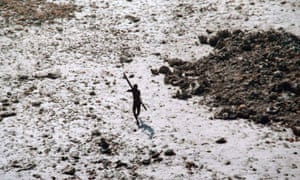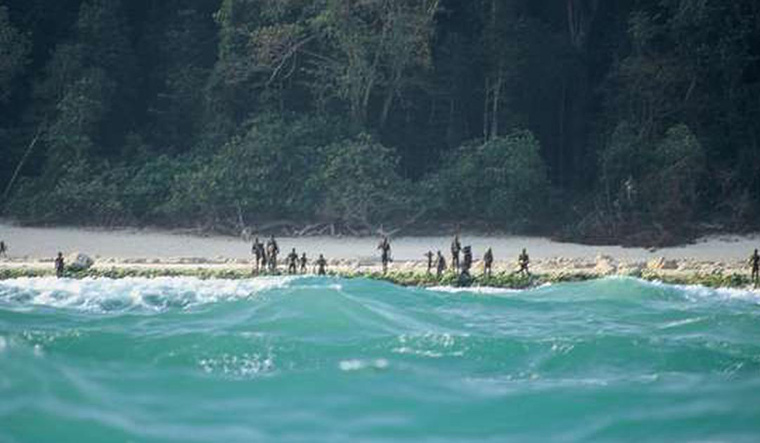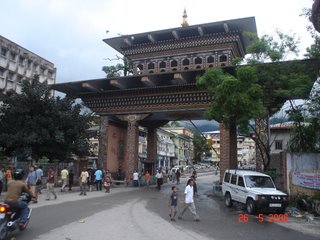John Allen Chau’s diary suggests he knew the risks of going to North Sentinel Island
Michael Safi in Delhi @safimichael

An American man who was killed by an isolated tribe on a remote Indian island wrote to his parents hours before his death that he wanted to “declare Jesus” to the tribespeople and that they should “not be angry at them or at God if I get killed”.
John Allen Chau, 26, is believed to have been hit with a volley of arrowsshortly after making land on North Sentinel Island, part of the Andaman and Nicobar Islands, last Friday.
The island, which is off-limits to visitors without permission, is home to a 30,000-year-old tribe that is known to aggressively resist outsiders.
Chau repeatedly tried to contact the tribespeople and managed to reach the island the day before he was killed. He tried to offer gifts of fish and a football, he wrote in his diary.
“I heard the whoops and shouts from the hunt,” Chau wrote in an entry that was given to several media outlets by his mother. “I made sure to stay out of arrow range, but unfortunately that meant I was also out of good hearing range.
“So I got a little closer as they (about six from what I could see) yelled at me, I tried to parrot their words back to them. They burst out laughing most of the time, so they probably were saying bad words or insulting me.
“I hollered: ‘My name is John, I love you and Jesus loves you.’ I regret I began to panic slightly as I saw them string arrows in their bows. I picked up the fish and threw it towards them. They kept coming.Advertisement
“I paddled like I never have in my life back to the boat. I felt some fear but mainly was disappointed. They didn’t accept me right away.”
One of the tribespeople – “a kid probably about 10 or so years old, maybe a teenager” – fired an arrow that struck his Bible, he wrote that night, onboard a boat he had paid fishermen 25,000 rupees (£275) to let him stay on, moored close to the island. “Well, I’ve been shot by the Sentinelese.”
The next day as he prepared to make another approach, Chau wrote a letter to his parents. “You guys might think I’m crazy in all this, but I think it’s worth it to declare Jesus to these people,” he wrote.
“Please do not be angry at them or at God if I get killed. Rather, please live your lives in obedience to whatever he has called you to and I’ll see you again when you pass through the veil.
“This is not a pointless thing. The eternal lives of this tribe is at hand and I can’t wait to see them around the throne of God worshipping in their own language, as Revelations 7:9-10 states.”
He signed off: “Soli deo gloria” (glory to God alone).

But his diaries revealed less certainty about the mission he was undertaking. “If you want me to get actually shot or even killed with an arrow, then so be it,” he wrote, addressing God. “I think I could be more useful alive though.
“I don’t want to die. Would it be wiser to leave and let someone else continue? No. I don’t think so. I still could make it back to the US somehow, as it almost seems like certain death to stay here.”
He gave the diary and letter to the fishermen and took a kayak back to the island. The fishermen told police they saw the tribe dragging away and burying Chau’s body the following day.
Seven people including five fishermen have been arrested for helping Chau reach the island. The Indian government recently lifted a ban on tourists going to the island, but Denis Giles, an activist for tribal rights in the Andamans, said state authorities still asked people to seek permission, and the status of the island was “a grey area”.
Police said Chau had visited the Andamans, which are scattered across the juncture of the Bay of Bengal and the Andaman Sea, four times in the past three years.
His family posted on his Instagram on Wednesday that they forgave his killers and asked for those who helped him to be released. They said Chau was a “beloved son, brother and uncle” as well as a Christian missionary.
“He loved God, life, helping those in need, and had nothing but love for the Sentinelese people,” the family said. “We forgive those reportedly responsible for his death.”


